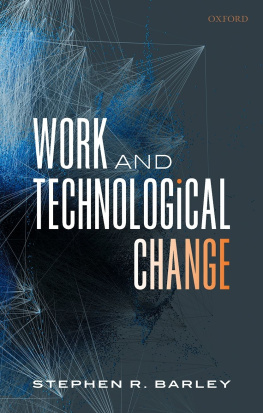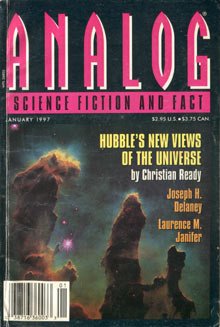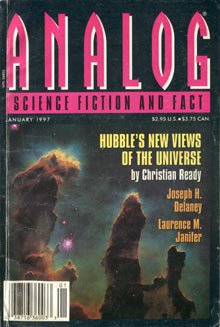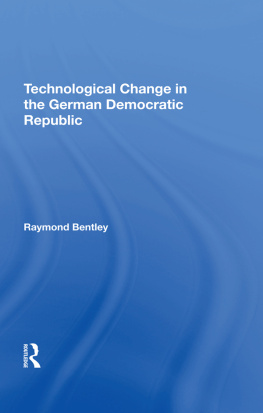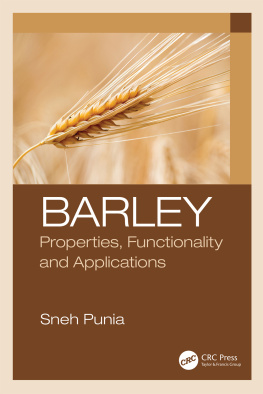Stephen R. Barley - Work and Technological Change
Here you can read online Stephen R. Barley - Work and Technological Change full text of the book (entire story) in english for free. Download pdf and epub, get meaning, cover and reviews about this ebook. year: 2020, publisher: Oxford University Press, genre: Politics. Description of the work, (preface) as well as reviews are available. Best literature library LitArk.com created for fans of good reading and offers a wide selection of genres:
Romance novel
Science fiction
Adventure
Detective
Science
History
Home and family
Prose
Art
Politics
Computer
Non-fiction
Religion
Business
Children
Humor
Choose a favorite category and find really read worthwhile books. Enjoy immersion in the world of imagination, feel the emotions of the characters or learn something new for yourself, make an fascinating discovery.
- Book:Work and Technological Change
- Author:
- Publisher:Oxford University Press
- Genre:
- Year:2020
- Rating:4 / 5
- Favourites:Add to favourites
- Your mark:
- 80
- 1
- 2
- 3
- 4
- 5
Work and Technological Change: summary, description and annotation
We offer to read an annotation, description, summary or preface (depends on what the author of the book "Work and Technological Change" wrote himself). If you haven't found the necessary information about the book — write in the comments, we will try to find it.
Work and Technological Change — read online for free the complete book (whole text) full work
Below is the text of the book, divided by pages. System saving the place of the last page read, allows you to conveniently read the book "Work and Technological Change" online for free, without having to search again every time where you left off. Put a bookmark, and you can go to the page where you finished reading at any time.
Font size:
Interval:
Bookmark:

The Clarendon Lectures in Management Studies are jointly organized by Oxford University Press and the Sad Business School. Every year a leading international academic is invited to give a series of lectures on a topic related to management education and research, broadly defined. The lectures form the basis of a book subsequently published by Oxford University Press.
Clarendon Lectures in Management Studies:
The Modern Firm
Organizational Design for Performance and Growth
John Roberts
Managing Intellectual Capital
Organizational, Strategic, and Policy Dimensions
David Teece
The Political Determinants of Corporate Governance
Political Context, Corporate Impact
Mark Roe
The Internet Galaxy
Reflections on the Internet, Business, and Society
Manuel Castells
Brokerage and Closure
An Introduction to Social Capital
Ronald S. Burt
Reassembling the Social
An Introduction to Actor-Network-Theory
Bruno Latour
Science, Innovation, and Economic Growth
Walter W. Powell
The Logic of Position, the Measure of Leadership
Position and Information in the Market
Joel Podolny
Global Companies in the 20th Century
Leslie Hannah
Gatekeepers
The Role of the Professions in Corporate Governance
John C. Coffee
Material Markets
How Economic Agents Are Constructed
Donald MacKenzie
Corporations in Evolving Diversity
Cognition, Governance, and Institutions
Masahiko Aoki
Staying Power
Six Enduring Principles for Managing Strategy and Innovation in an Uncertain World
Michael A. Cusumano
The Entrepreneurial Firm: Strategy and Organization in New Markets
Kathleen M. Eisenhardt
Doing New Things in Old Organizations
The (Business) Challenge of Climate Change
Rebecca M. Henderson
Maverick Markets
The Virtual Societies of Financial Markets
Karin Knorr Cetina
Disruptive Innovation and Growth
Clayton Christianson
The Architecture of Collapse
The Global System in the 21st Century
Mauro F. Guilln
The 99 Percent Economy
How Democratic Socialism Can Overcome the Crises of Capitalism
Paul S. Adler
Work and Technological Change
Stephen R. Barley
Selves at Work
Herminia Ibarra

Great Clarendon Street, Oxford, OX2 6DP, United Kingdom
Oxford University Press is a department of the University of Oxford. It furthers the Universitys objective of excellence in research, scholarship, and education by publishing worldwide. Oxford is a registered trade mark of Oxford University Press in the UK and in certain other countries
the authors 2020
The moral rights of the authors have been asserted
First Edition published in 2020
Impression: 1
All rights reserved. No part of this publication may be reproduced, stored in a retrieval system, or transmitted, in any form or by any means, without the prior permission in writing of Oxford University Press, or as expressly permitted by law, by licence or under terms agreed with the appropriate reprographics rights organization. Enquiries concerning reproduction outside the scope of the above should be sent to the Rights Department, Oxford University Press, at the address above
You must not circulate this work in any other form and you must impose this same condition on any acquirer
Published in the United States of America by Oxford University Press
198 Madison Avenue, New York, NY 10016, United States of America
British Library Cataloguing in Publication Data
Data available
Library of Congress Control Number: 2020944348
ISBN 9780198795209
ebook ISBN 9780192514417
DOI: 10.1093/oso/9780198795209.001.0001
Printed and bound by CPI Group (UK) Ltd, Croydon, CR0 4YY
Links to third party websites are provided by Oxford in good faith and for information only. Oxford disclaims any responsibility for the materials contained in any third party website referenced in this work.
I was and remain honored to have been selected to deliver the Clarendon Lectures at Oxford University in 2016. Looking over the list of those who gave these lectures before me was humbling, and I still wonder if someone did not make a mistake. Regardless, I am grateful to the Oxford University Press and to the Sad School of Business for deeming me worthy of the honor.
For my lectures, I chose to write three essays () was written after delivering the lectures. I intend the essays and this book to bring closure to my career to date. I am not sure whether I will continue to study technology and work in the future, but if I do, I suspect that whatever I write will stand on the thoughts and conclusions found among these pages. It is hard to teach old dogs new tricks, and with each passing day I become an older dog.
The first essayWhat Is a Technological Revolution?presents the fruits of my struggle to come to terms with the broad history of technological change and with where current developments fit into the scheme by which I have come to make sense of the First, the Second, and what I will call the Control Revolution. The last involves computers, microprocessors, robotics, sensors, machine learning, and algorithms, which are again making technology and work a topic of current concern. The level of analysis here is far more sweeping than the level of analysis for which my work is known, since I am primarily an ethnographer and not a historian or a theorist. The essay is rooted in lectures that I developed for my undergraduate students at Stanford with the hope that they might be better able to put the era in which they live into perspective by linking the past to the present. If nothing else, the essay gave me the opportunity to retell Pertti Peltos (1973) story of The Snowmobile Revolution: Technology and Social Change in the Artic. Peltos book influenced me strongly when I was a graduate student, and to this day I count it as one of the best ethnographies ever written on the social consequences of technological change. The essay also allows me to acquaint or reacquaint scholars with the work of William Faunce and to initiate a discussion of intelligent technologies and the so-called Fourth Industrial Revolution which the third essay pursues in greater depth.
The second essayHow Do Technologies Change Organizations?brings me back to my comfort zone. The essay recounts what I think I have learned about how technologies change work and about when those changes will and will not result in organizational change. Specifically, I propose a role-based theory of technologically occasioned organizational change that I began to develop in my earliest work on radiology and that I have continued to elaborate since then. Unsurprisingly, for those who have read some of my work, my view is rooted in Industrial Sociology and, in particular, the studies of work done by Chicago School Sociologists of the 1940s and 1950s, long my heroes. Among them I count Everett C. Hughes, Howard Becker, and Anselm Strauss, all of whom I was fortunate enough to meet in my lifetime.
I wrote the third essayHow Should We Study Intelligent Technologies Implications for Work and Employment?with my colleague at UCSB, Matt Beane, who knows more about intelligent technologies and how they operate than I do. The essay lays out our notions of how researchers can better investigate the ramifications of intelligent technologies to answer the question How are intelligent technologies likely to change the nature of work and employment? This question is currently a topic of great discussion, debate, consternation, and fear as we head deeper into the twenty-first century. The essay draws on ideas discussed in the first and second essays. It identifies and discusses two reasons why we see the current state of research and speculation on intelligent technologies in the workplace as inadequate. The essay also provides pointers to the kinds of research that would be useful for assessing more clearly what intelligent technologies, especially artificial intelligence, may do to work and employment. Unless we produce not only more but better empirical studies, we are likely to stumble our way into a future that the majority of us may or may not want. I do not believe that sociotechnical trajectories are foreordained, either for reasons of progress or a technologys inevitable unfolding. We always have a choice if we (or, more accurately, powerful people) can muster the data and the will to make a informed choices for the benefit of the majority.
Font size:
Interval:
Bookmark:
Similar books «Work and Technological Change»
Look at similar books to Work and Technological Change. We have selected literature similar in name and meaning in the hope of providing readers with more options to find new, interesting, not yet read works.
Discussion, reviews of the book Work and Technological Change and just readers' own opinions. Leave your comments, write what you think about the work, its meaning or the main characters. Specify what exactly you liked and what you didn't like, and why you think so.

